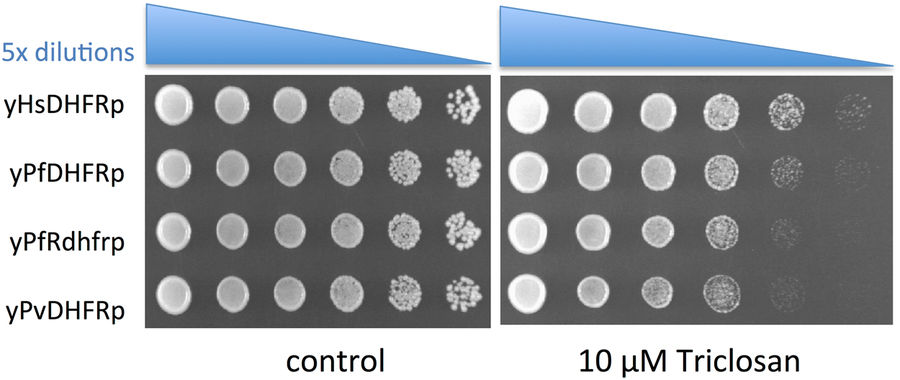Triclosan Found to Exhibit Exciting Antimalarial Activity
Over half a million deaths per year result from malaria, caused by parasites of the genus Plasmodium. Approximately 90% of these deaths (generally of children in Africa) are caused by Plasmodium falciparum. However, Plasmodium vivax is the malaria parasite with the largest global distribution, threatening 2.5 billion people – mainly in South America and Asia.
There is an urgent need to develop new anti-malarial drugs as resistance has arisen against all existing drugs, and there is no immediate prospect of an effective vaccine.
Now, a new research by scientists at the University of Campinas (UNICAMP) in Brazil, has shown that triclosan inhibits malaria parasites that have developed resistance to anti-malarial drugs as well.
Triclosan is a simple antimicrobial agent that has been used for more than 40 years, and which is safe enough to be incorporated into consumer products from toothpastes to toys.
In 2001, it was reported that triclosan inhibits the in vitro propagation of P. Falciparum through an enzyme called type II fatty acid synthase (FAS-II). Since then, triclosan and its analogs have been repeatedly shown to inhibit the growth of blood-stage P. falciparum in culture.
“The compound itself could be a therapeutic option, but I believe it would be more worthwhile to develop analogous molecules with minor structural alterations that could make it even more effective against the parasite,
” said the co-principal investigator of the study, Elizabeth Bilsland. She is a professor in the Structural & Functional Biology Department of UNICAMP’s Biology Institute.“Actually, FAS-II is only important to the parasite’s survival in the hepatic stage,” Dr. Bilsland added. “Now, we’ve shown through experiments using yeast that triclosan also inhibits the enzyme dihydrofolate reductase (DHFR), an essential target for the erythrocytic stage of the parasite.”
“The development of new drugs that can attack P. vivax in both the hepatic and erythrocytic stages is urgently needed since there are reports of parasites resistant to each of the antimalarial drugs on the market,” explained Bilsland. “If there are different targets, they’ll be less likely to develop drug resistance.”
Testing new compounds in Plasmodium is challenging. To overcome that, the research group developed an assay based on yeast that allowed for screening of compounds that target Plasmodium enzymes. How does it work? The researchers add genes that encode key Plasmodium enzymes into the yeast and then add compounds to the yeast. If the drug targets that particular Plasmodium enzyme, the yeast will not grow. This allows them to analyze how the drug is working on that one enzyme.
The discovery of triclosan’s second action mechanism by the groups at UNICAMP, Manchester and Cambridge happened almost by chance while they were conducting a large-scale screening of compounds approved for human use by the United States Food & Drug Administration (FDA), in search of drugs that could inhibit the enzyme DHFR in Plasmodium.
“We observed cases in which the yeast with a Plasmodium gene died and the one with a human gene survived, and in this way, we screened compounds with specific antiparasitic action. Triclosan gave the best results, with both normal and drug-resistant DHFR,” Bilsland explained.
Several biochemical assays, computer simulations and experiments with yeast were performed to validate triclosan’s action against DHFR. The results showed that the substance was effective even against parasites resistant to pyrimethamine, a recognized DHFR inhibitor used in malaria prevention and treatment.
“We also showed that triclosan has 20 times greater affinity for the parasite’s enzyme than for the human equivalent, a key feature in a candidate drug,” Bilsland said.






























